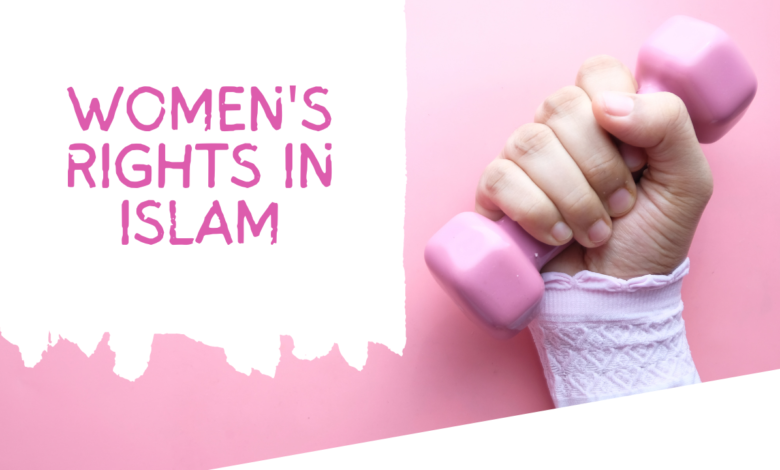
Women’s Rights in Islam
Yes, Islam explicitly recognizes the spiritual equality of men and women, emphasizing that both are equal in the eyes of God.
Introduction
Women’s rights have been a topic of global discussion and activism for decades, and the perception of women’s rights in Islam often varies widely. While some view Islam as oppressive towards women, it is essential to delve deeper into the religion’s teachings and history to gain a more nuanced understanding. In this article, we will explore the rights and status of women in Islam, shedding light on the principles and practices that promote gender equality within the framework of the religion.
Spiritual Equality
One of the fundamental principles of Islam is the concept of spiritual equality. In the Quran, it is explicitly stated that men and women are equal in the eyes of God. In Surah Al-Ahzab (33:35), it is mentioned: “For Muslim men and women, for believing men and women, for devout men and women, for true men and women, for men and women who are patient and constant, for men and women who humble themselves, for men and women who give in charity, for men and women who fast, for men and women who guard their chastity, and for men and women who engage much in Allah’s praise, for them has Allah prepared forgiveness and a great reward.“
This verse highlights that both men and women share the same spiritual responsibilities and opportunities in Islam, and their worth is determined by their faith and actions rather than their gender.
Also check.
- Who is the Wessiah in Islam?
- What is Wudu in Islam?
- What is Jihad in Islam?
- What are the Holy Books of Islam?
- When is 12 Rabiul Awal?
Education
Islam places a strong emphasis on seeking knowledge, and this applies equally to both men and women. The Prophet Muhammad (peace be upon him) is reported to have said, “Seeking knowledge is obligatory for every Muslim.” This includes women as well. Historically, Muslim women have been scholars, scientists, and educators, contributing significantly to the Islamic intellectual tradition.
Economic Rights
In Islamic law, women have the right to own, inherit, and manage their wealth and property independently. In fact, the Quran specifically mentions the right of women to inherit from their family members. While the Quran prescribes that a son should inherit twice as much as a daughter, it also emphasizes that women have the right to their own share of inheritance, and their property is not to be usurped by male relatives.
Marital Rights
Marriage in Islam is considered a partnership between equals. Muslim women have the right to choose their spouses, and they are not to be forced into marriage against their will. Furthermore, Islamic law recognizes a woman’s right to divorce, known as “khula,” under certain circumstances, ensuring that women are not trapped in unhappy or abusive marriages.
The concept of “mahr” in Islamic marriages also grants women financial security. It is a gift from the husband to the wife, which becomes her exclusive property, and she can choose to use it as she sees fit.
Legal Rights
Islamic law, or Sharia, provides guidelines for various aspects of life, including family law. Women have the right to legal representation and a fair trial in cases involving family disputes or any other legal matters. In many cases, Islamic legal scholars have advocated for the protection of women’s rights within the framework of Islamic jurisprudence.
Social and Political Participation
While cultural and regional practices have sometimes limited women’s participation in public life, Islam itself does not prohibit women from being active members of society or engaging in political activities. The Quran encourages consultation (shura) among believers, and there is no gender-based restriction on participating in this process.
Conclusion
In conclusion, the status of women in Islam is a topic that requires a nuanced understanding, as it can vary based on cultural interpretations and practices. However, when one examines the core teachings of Islam, it becomes clear that the religion emphasizes the equality of men and women in spiritual worth, education, economic rights, and legal rights. While there are certainly challenges and disparities faced by women in various Muslim-majority countries, these issues often stem from cultural and societal practices rather than the teachings of Islam itself. It is essential to differentiate between cultural norms and religious principles when discussing women’s rights in Islam, as the religion itself promotes a framework that seeks to protect and uplift women in various aspects of their lives.
FAQs
Are women considered equal to men in Islam?
Yes, Islam explicitly recognizes the spiritual equality of men and women, emphasizing that both are equal in the eyes of God.
What rights do Muslim women have in terms of education?
Muslim women have the right to seek knowledge, and the Prophet Muhammad encouraged both men and women to pursue education. Historically, Muslim women have been scholars and educators.
Do women have property and inheritance rights in Islam?
Yes, Islamic law grants women the right to own, inherit, and manage their property independently. The Quran also prescribes shares of inheritance for female family members.
Can Muslim women initiate divorce?
Yes, under certain circumstances, Muslim women have the right to seek divorce through a process known as “khula.”
What is “mahr” in Islamic marriages?
“Mahr” is a gift from the groom to the bride in Islamic marriages. It becomes the exclusive property of the bride and provides her with financial security.
Are women allowed to participate in politics and public life in Islam?
Islam does not prohibit women from participating in political activities or engaging in public life. In fact, the Quran encourages consultation (shura) among believers, which includes both men and women.
Are there any restrictions on women’s dress code in Islam?
Islam encourages modest dress for both men and women. While there are varying interpretations of what constitutes modest dress, the hijab (headscarf) is a common form of modest dress for Muslim women.
Do Islamic laws vary by region or culture regarding women’s rights?
Yes, cultural practices and interpretations of Islamic laws can vary from one region to another. It’s important to differentiate between cultural norms and the core teachings of Islam.



